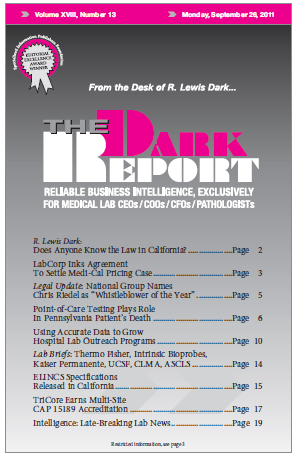CEO SUMMARY: In its “Settlement Agreement and Release” with the California Attorney General (AG), Laboratory Corporation of America has negotiated terms that essentially match the agreement that exists between Quest Diagnostics Incorporated and the California AG. These settlements signal the end of chapter one in the story about deeply-discounted lab test pricing that is less …
LabCorp Inks Agreement In Medi-Cal Pricing Case Read More »
To access this post, you must purchase The Dark Report.


